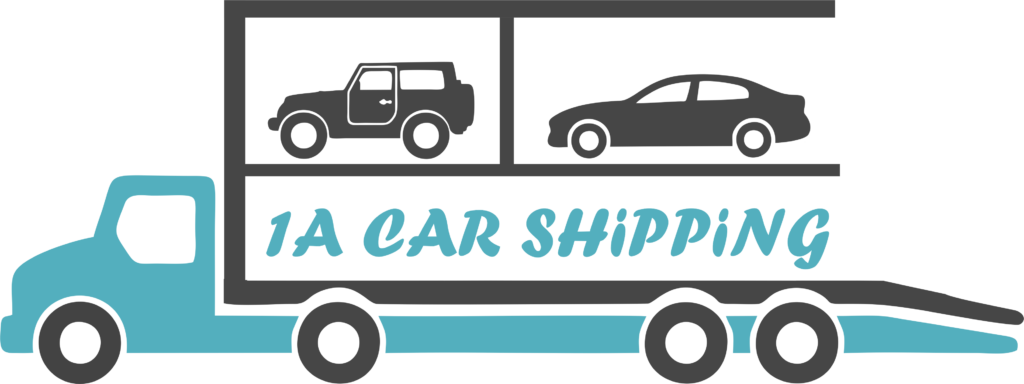Moving across country can be an exciting and life-changing adventure. Whether you’re relocating for a new job opportunity, pursuing your dreams, or simply seeking a fresh start, the prospect of starting anew in a different part of the country is undeniably enticing. But before you embark on this thrilling journey, there’s one important question that looms large: how much money do you really need to make this move? In this comprehensive guide, we’ll delve into the various costs associated with moving across country and help you determine just how much you should save to ensure a smooth transition. So grab your notepad and let’s dive in!
The Costs of Moving
When it comes to moving across the country, there are several costs that you need to consider. First and foremost is the cost of hiring a professional moving company. The price will depend on factors such as the distance, size of your belongings, and any additional services you may require.
Don’t forget about packing supplies! Boxes, tape, bubble wrap – all of these essentials can quickly add up. It’s always a good idea to stock up on these items beforehand to avoid any last-minute expenses.
Another expense to keep in mind is transportation. If you’re driving yourself, factor in the cost of gas, meals on the road, and accommodation if needed. If you’re flying instead, don’t overlook the price of plane tickets for both yourself and your belongings.
Once you arrive at your new destination, there may be additional costs waiting for you. Settling into a new home often entails expenses like utility deposits or fees for setting up internet and cable services.
And let’s not forget about unforeseen costs! It’s always wise to have some extra money set aside for unexpected emergencies or surprises along the way.
Moving across country can be an expensive endeavor with numerous variables involved. By carefully considering all potential costs ahead of time and budgeting accordingly, you’ll be better prepared for this exciting chapter in your life without any financial hiccups along the way!
How Much You’ll Need to Save for a Move
Moving across the country is an exciting but expensive endeavor. Before you pack your bags and hit the road, it’s essential to have a clear understanding of how much money you’ll need to save for this big move.
First and foremost, consider the cost of hiring professional movers or renting a moving truck. The size of your home and the distance you’re traveling will play a significant role in determining these expenses. Additionally, don’t forget about packing supplies such as boxes, tape, and bubble wrap – these seemingly small costs can quickly add up.
Next on your budget list should be transportation costs. If you’re driving yourself, factor in fuel expenses, tolls along the way, and even meals if it’s going to be a long journey. If flying is more convenient for you, remember to include airfare tickets for yourself and any family members joining you.
Accommodation is another aspect that shouldn’t be overlooked when estimating your moving budget. Depending on how far away your new location is from your current one, you may need temporary lodging during transit or while waiting for your new home to become available.
Don’t forget about utility deposits! Many apartments or rental properties require upfront payment for utilities like electricity, water, and gas, so make sure to set aside some funds specifically for these charges.
Lastly, but importantly, unexpected expenses happen! It’s always wise to have some extra cash saved up just in case something unforeseen comes up during the move, whether it’s car trouble or additional fees at hotels along the way.
Moving across the country requires careful financial planning. By considering all aspects mentioned above and having a cushion of savings set aside specifically for this purpose, you will help ensure a smooth transition without unnecessary stress about money matters.
The Types of Loans Available for Moving
Moving across country can be an exciting and life-changing experience, but it’s also a costly endeavor. By now, you should have a clear understanding of the various expenses involved in such a move and how much money you’ll need to save.
However, if you find yourself short on funds or unable to cover all the costs upfront, there are options available to help finance your move. One such option is taking out a loan specifically designed for moving purposes.
There are several types of loans available for moving that can assist you in covering the expenses associated with relocating across the country. Personal loans from banks or online lenders can provide you with the necessary funds upfront, which you can then repay over time with interest.
Another option is to use credit cards strategically to cover some of your moving costs. However, keep in mind that this method may come with higher interest rates compared to personal loans.
If you’re a homeowner looking to move across the country, consider tapping into your home equity through a Home Equity Line of Credit (HELOC) or refinancing your mortgage. These options allow homeowners to borrow against the value of their property and use those funds for any purpose they choose.
Some employers offer relocation assistance programs as part of their employee benefits package. If this applies to you, don’t hesitate to inquire about any financial support they may provide for your cross-country move.
Before deciding on any loan option or assistance program, carefully evaluate the terms and interest rates associated with each choice. Ensure that borrowing money aligns with your long-term financial goals and that repayment fits comfortably within your budget.
Remember that while loans can be helpful in financing your move across the country, it’s always wise to save as much money as possible beforehand. This will reduce reliance on borrowed funds and alleviate potential stress down the road when it comes time for repayment.
Pros:
• Can save money by finding the most cost-effective way to move
• Can help individuals plan for their move financially
• Can help people budget for the necessary expenses
• Can give individuals a realistic idea of the cost of moving
Cons:
• Can be overwhelming to figure out all the costs associated with moving
• Can be difficult to get accurate estimates for the cost of moving
• Can be difficult to determine which services or supplies are necessary for the move
• Costs can vary significantly depending on the size of the move and the distance of the move
FAQs:
1. How much money do I need to move across the country?
Answer: The exact amount of money you will need to move across the country depends on several factors, including the size and distance of your move, whether you are hiring professional movers or doing it yourself, and what type of transportation you are using. Generally speaking, it is estimated that a long-distance move can cost anywhere from $3000-$7000.
2. What costs should I factor in when moving across the country?
Answer: When budgeting for a move across the country, there are several costs to consider. These include the cost of renting a truck or hiring a professional mover, the cost of packing materials such as boxes, tape and bubble wrap, the cost of fuel for the transport vehicle, lodging and meals along the way, and any storage fees if needed.
3. Are there any other expenses I need to be aware of?
Answer: Yes, depending on your situation, there may be additional costs associated with your move, such as pet relocation, car shipping, utility transfer fees, and home insurance. It is important to research all of these potential costs ahead of time in order to plan your budget accordingly.
4. Are there any discounts or incentives available to help offset the cost of a cross-country move?
Answer: Yes, there are often discounts and incentives offered by moving companies, truck rental companies, and storage facilities. It is worth shopping around to compare prices and see if any specials are available to help reduce your overall moving costs.
5. Is there any financial assistance available to help cover the cost of a cross-country move?
Answer: Depending on your circumstances, you may be eligible for financial assistance from state and federal programs, such as the Department of Agriculture’s Emergency Moving Assistance Program or the Federal Emergency Management Agency’s Individual Assistance Program. Additionally, some employers offer relocation assistance to their employees.
Features:
1. Estimate the cost: Before you start planning, it’s essential to get an idea of how much money you’ll need to move. This includes the cost of transportation, storage, packing materials, and other costs such as movers, rental trucks, fuel, etc.
2. Budget for unexpected costs: Moving can be unpredictable, so it’s important to create a budget that accounts for any unexpected costs. These could include additional fees for the vehicle, storage, or other services.
3. Research transportation options: Depending on your budget and how much stuff you’re moving, you’ll need to research the best transportation option. This could include renting a truck, hiring a moving company, or driving your own car.
4. Get packing supplies: To ensure that your items arrive safely, you’ll need to purchase packing supplies such as boxes, bubble wrap, tape, labels, and markers.
5. Account for food and lodging: Depending on the distance you’re moving, you’ll likely need to account for food and lodging during your move. This could include meals, hotels, and other living expenses.
6. Don’t forget insurance: In order to protect your items during the move, it’s important to purchase insurance. This could include coverage for theft, damage, and other potential risks.

